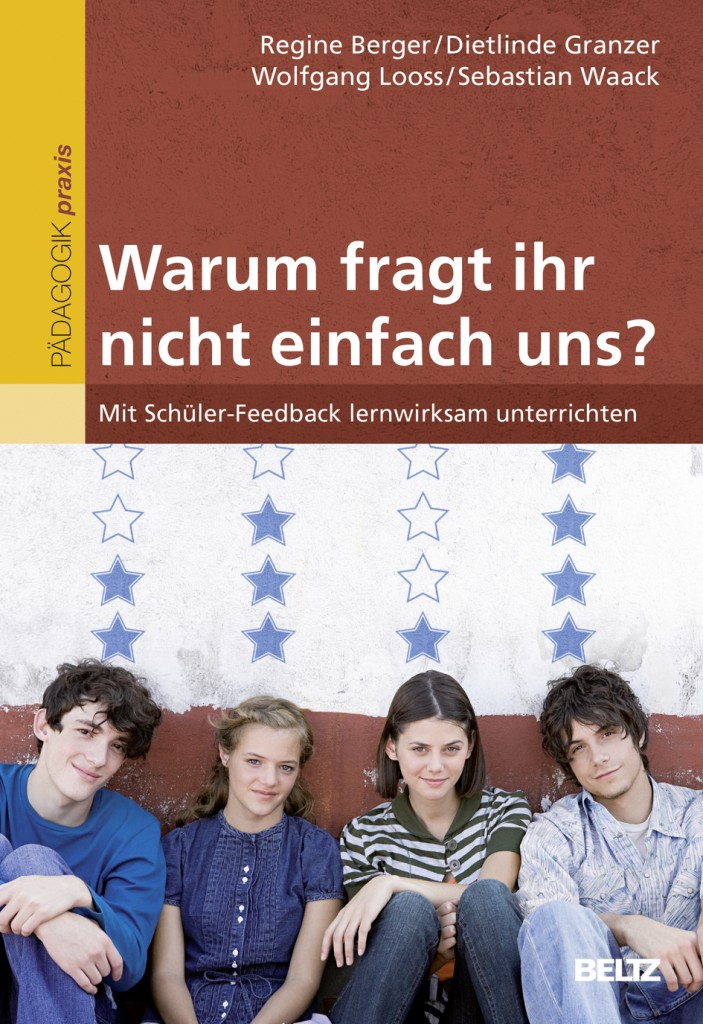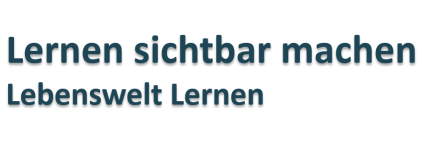 Schülerfeedback nach Hattie: Warum fragt ihr nicht einfach uns?
Schülerfeedback nach Hattie: Warum fragt ihr nicht einfach uns?
Berger, R./Granzer, D./Looss, W./Waack, S. (2013): »Warum fragt ihr nicht einfach uns?« Mit Schülerfeedback lernwirksam unterrichten. Weinheim und Basel: Beltz.
Am 4. Februar 2013 erscheint im Beltz-Verlag das oben genannte Buch: Ausgehend von den Erkenntnissen der Hattie-Studie Visible Learning (2009) wird am Beispiel von Schülerfeedback aufgezeigt, wie der Einstieg in eine Rückmeldekultur gelingen kann. Ausführlich werden das Feedback und seine Einsatzmöglichkeiten beschrieben und erläutert, wie Lehrende mit Schüler-Feedback ihren Unterricht wirksamer gestalten und wie Schulen eine Feedback-Kultur erreichen können, die sie in der Qualitätsentwicklung spürbar voranbringt. Dabei wird das Vorgehen bei der Einbindung des Schülerfeedback aus unterschiedlichen Perspektiven beleuchtet. Ist man an Nachhaltigkeit interessiert, können onlinegestützt themenbezogene Formen des Schülerfeedbacks implementiert werden, um auf der Basis dieser Rückmeldungen das Lernen und den Unterricht dauerhaft zu optimieren und auch zu organisieren.
Kommentar von John Hattie zum Buch:
Feedback is powerful in the learning equation but the problem is that it is also among the most variable in its effectiveness. It depends where the student is in the cycle of learning (from novice through pro? cient to competent), it varies in the question that feedback is addressing (where am I going, how am I going, and where to next), it is differently effective depending on the level of feedback (task, process, conceptual), there are skills in receiving and interpreting feedback, and it is most effective when teachers seek and interpret the feedback about their impact – then the students are the bene?ciaries. »Warum fragt ihr nicht einfach uns?« is a powerful book that helps unravel these mysteries of the power of feedback. It relates feedback to assessment, shows the in?uence of different strategies, talks about feedback at all levels of the school, and provides many speci? c examples. The question I am asked most is: Where do I start to understand feedback? Now I have the answer – read this book.
John Hattie
Director, Melbourne Education Research Institute
Melbourne Graduate School of Education
University of Melbourne

